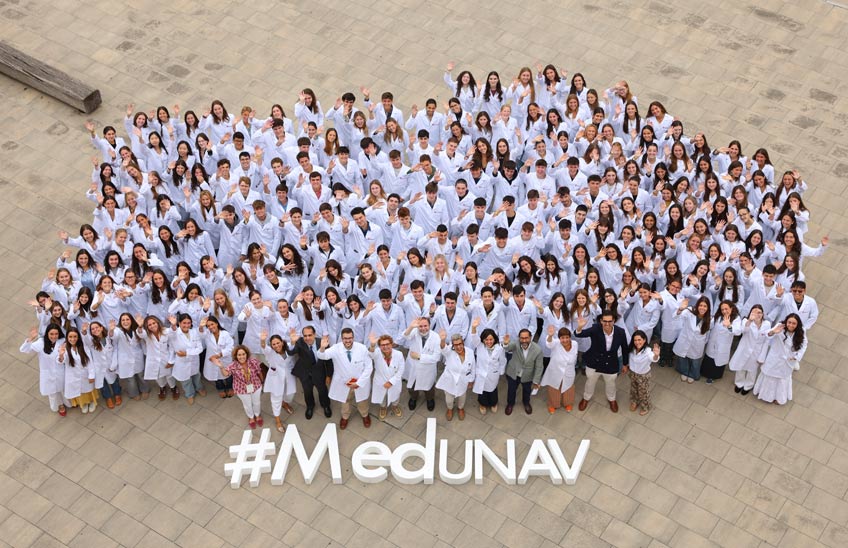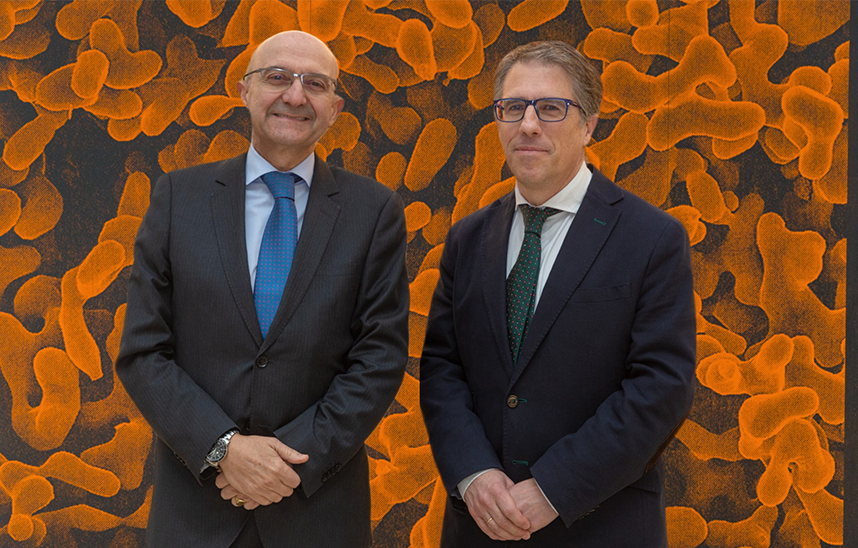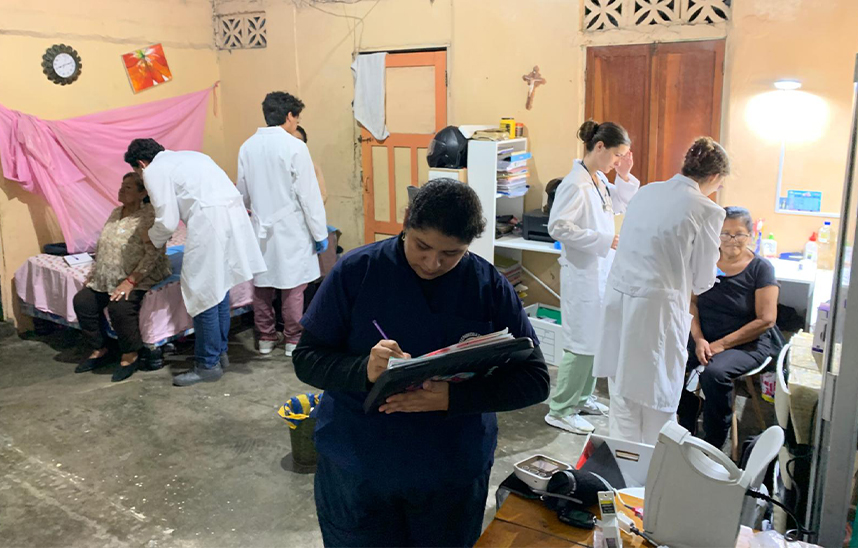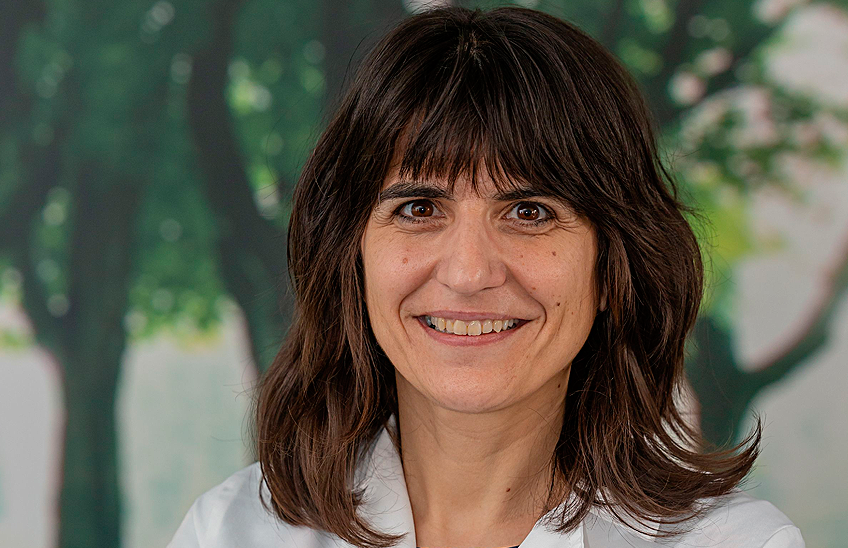Special Sanfermines from Congo: the experience of a University student in Kinshasa
María Requena, from Pamplona, has just returned from the Congo where she has worked on project to prevent cervical cancer.
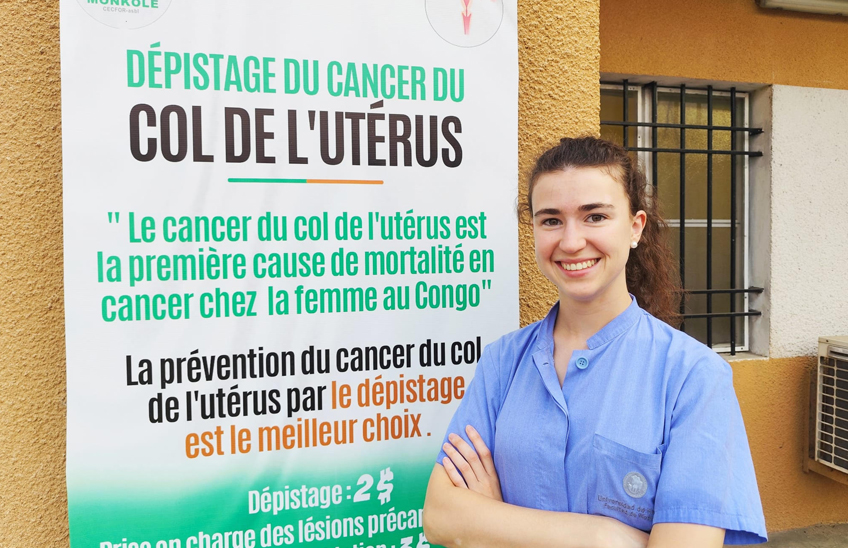
15 | 07 | 2024
María Requena, a native of Pamplona, has just finished her 4th year of Medicine at the University of Navarra. For two weeks in July she has traveled to Kinshasa, capital of the Democratic Republic of Congo, where she has collaborated in a gynecological screening that tries to prevent one of the most deadly tumor diseases for Congolese women: cervical cancer. The project is promoted by the NGO Amigos de Monkole.
The medical team was made up of six health professionals -most of them from the Clínica Universidad de Navarra- and eight medical students, together with Maria. The name of the program is Elikia, which means 'hope' in language lingala and for the last eight years it has been coordinated by Dr. Luis Chiva, director of the department of Gynecology and Obstetrics of the Clínica Universidad de Navarra.
María Requena, 22 years old, traveled to the heart of Africa with the intention of helping in the medical project : "In the Congo people live very day to day. Women only go to enquiry when they are very ill," she says. "In addition to treating patients, we have tried to train women to be more concerned about prevention. In this way, we avoid the advanced tumors that we were able to see in the first few days".
In the Democratic Republic of Congo, nearly 100% of cervical cancer cases are caused by the Human Papilloma Virus (HPV). The screening that Elikia has implemented at Monkole Hospital locates patients with HPV and eradicates the virus in its precancerous form before it is too late.
Maria explains what the screening consisted of: "The patients went to enquiry; we did a visual inspection and different tests that we sent to laboratory that we placed there to provide them with the results on the same day. Many patients came from far away and others were not used to the health check, so it is very important to see them, diagnose them and treat them at the same workshop". Women who do have HPV are treated by thermoablation, a procedure recommended by the World Health Organization (WHO) since 2019: "It consists of introducing a kind of small gun that burns the lesions for one minute. It leaves a whitish burn and assures us that we are done with the virus."
María Requena admits having missed the San Fermín festivities: "During breakfast, before going to work, we quickly watched the running of the bulls. However, I could not miss the opportunity to come to the Congo, at the same time we enjoyed a very Navarrese atmosphere there, we sang some jota and wore the pañuelico". She has returned to Spain very satisfied after two weeks of work and having seen 535 patients with the team.

